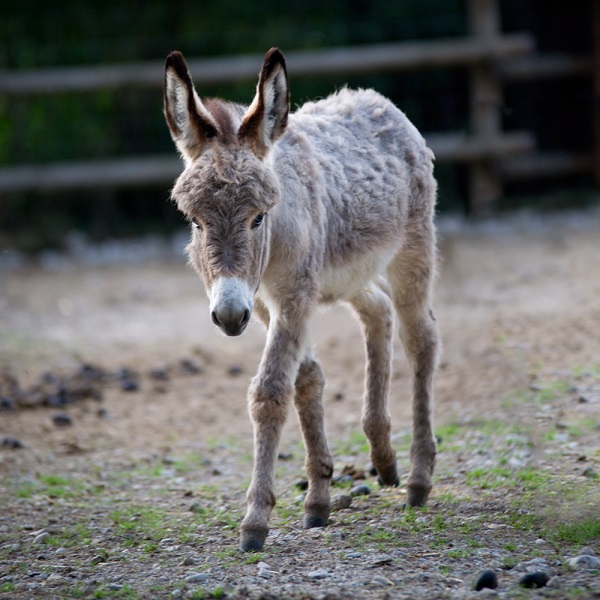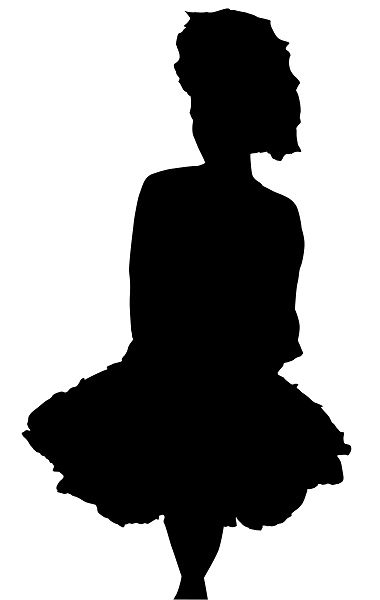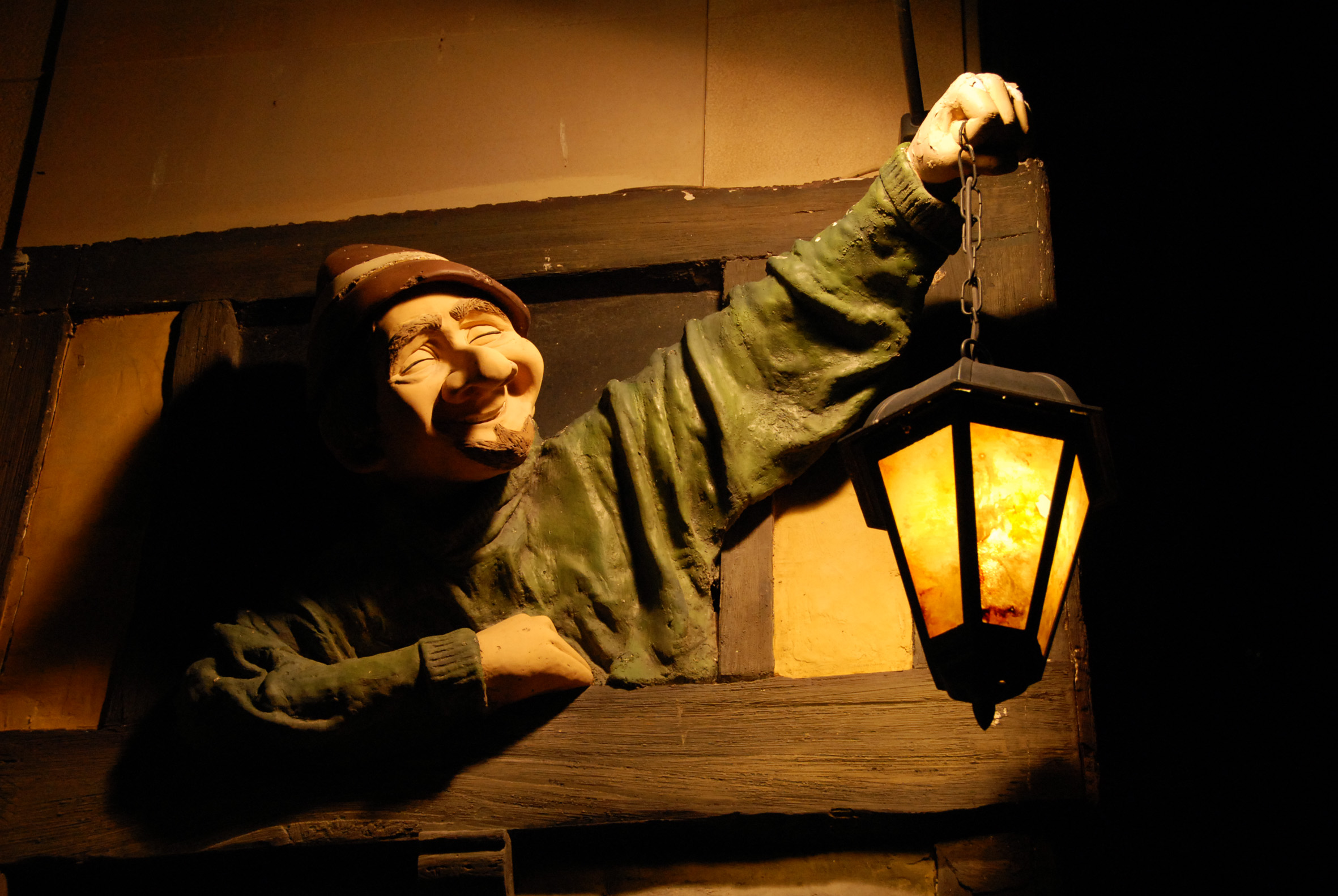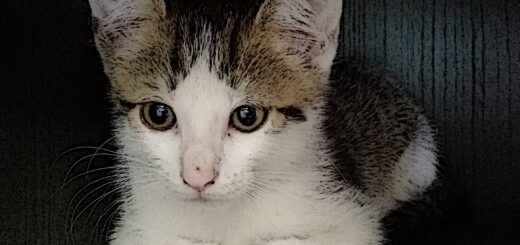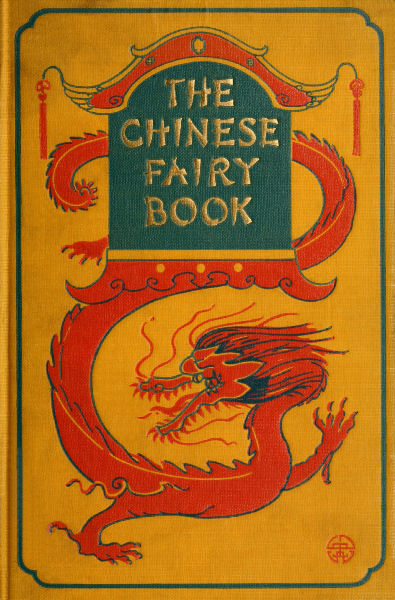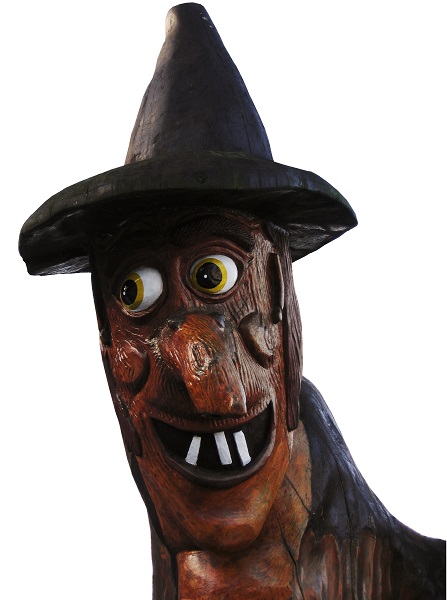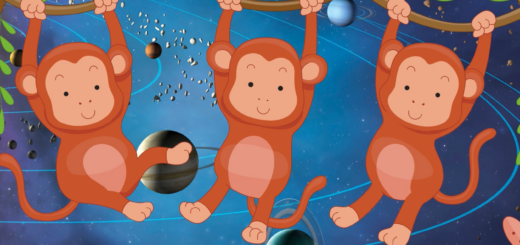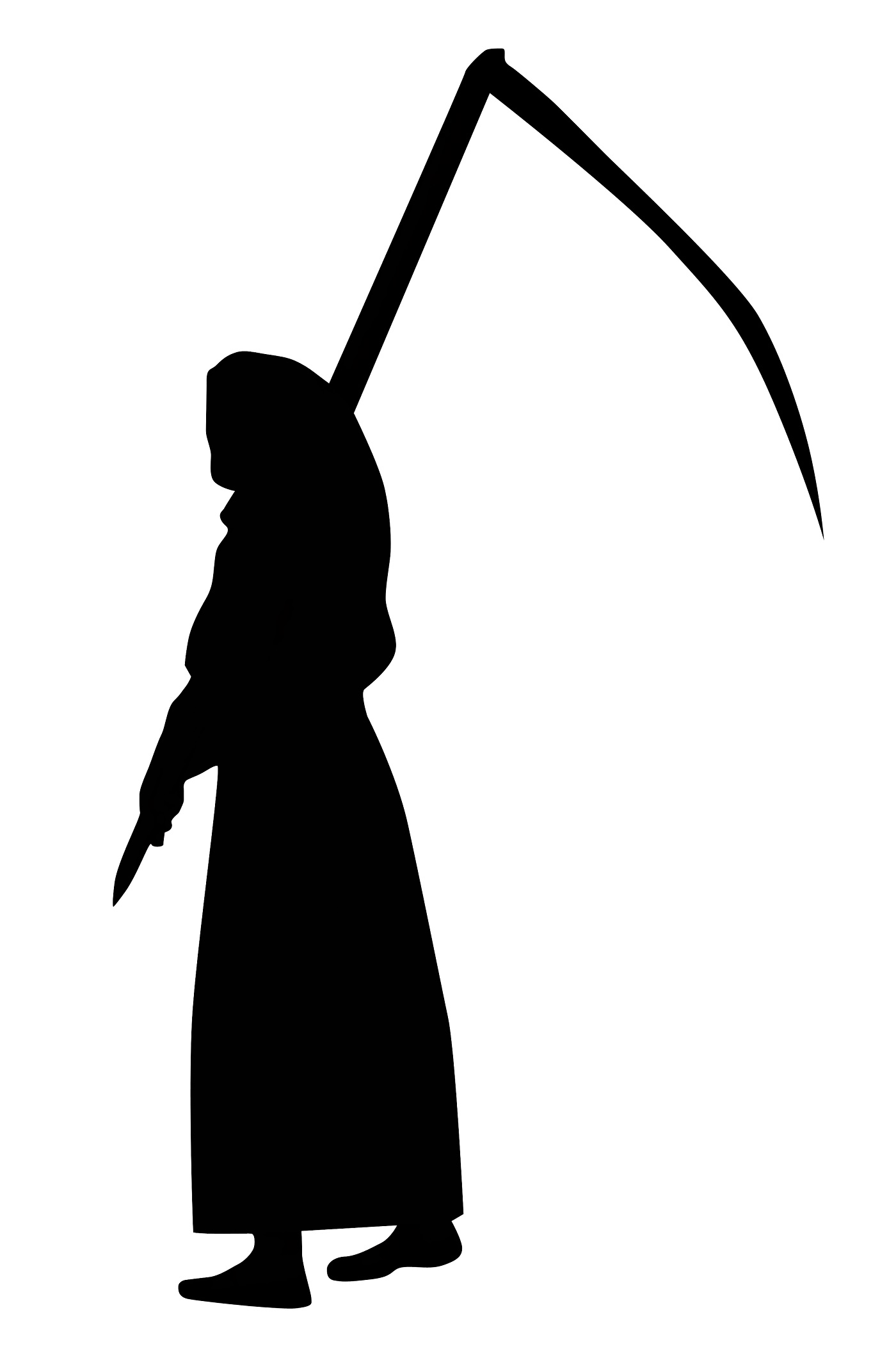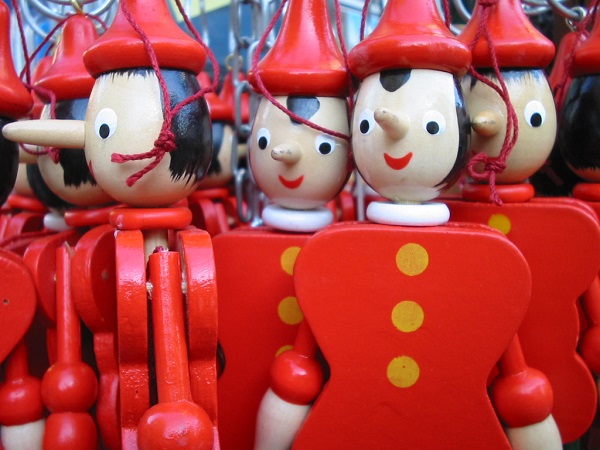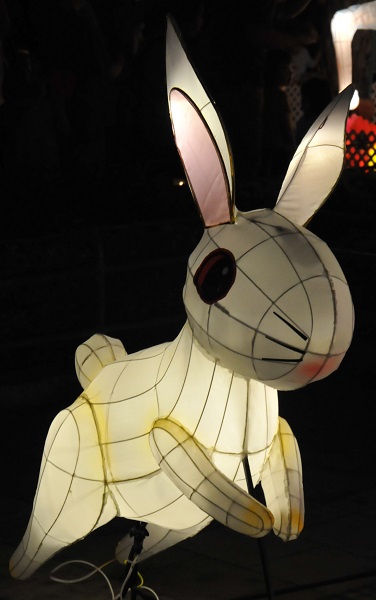LONG, BROAD, AND SHARPSIGHT (Dlouhy, Siroky, Bystrozyakr) in (SIXTY FOLK-TALES FROM EXCLUSIVELY SLAVONIC SOURCES, 1889) by K. J. Erben
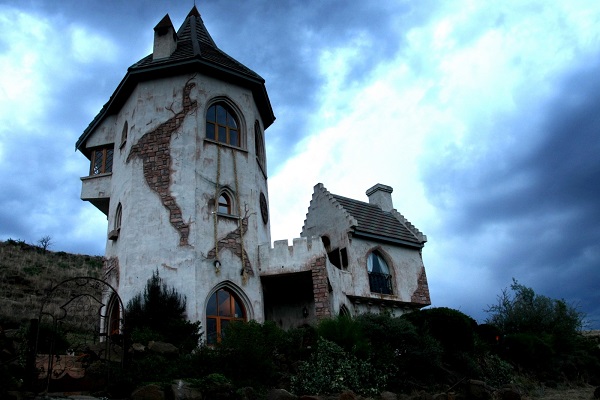
There was a king, who was already old, and had but one son. Once upon a time he called this son to him, and said to him, ‘My dear son! you know that old fruit falls to make room for other fruit. My head is already ripening, and maybe the sun will soon no longer shine upon it; but before you bury me, I should like to see your wife, my future daughter. My son, marry!’ The prince said, ‘I would gladly, father, do as you wish; but I have no bride, and don’t know any.’ The old king put his hand into his pocket, took out a golden key and showed it to his son, with the words, ‘Go up into the tower, to the top story, look round there, and then tell me which you fancy.’ The prince went without delay. Nobody within the memory of man had been up there, or had ever heard what was up there.
When he got up to the last story, he saw in the ceiling a little iron door like a trap-door. It was closed. He opened it with the golden key, lifted it, and went up above it. There there was a large circular room. The ceiling was blue like the sky on a clear night, and silver stars glittered on it; the floor was a carpet of green silk, and around in the wall were twelve high windows in golden frames, and in each window on crystal glass was a damsel painted with the colours of the rainbow, with a royal crown on her head, in each window a different one in a different dress, each handsomer than the other, and it was a wonder that the prince did not let his eyes dwell upon them. When he had gazed at them with astonishment, the damsels began to move as if they were alive, looked down upon him, smiled, and did everything but speak.
Now the prince observed that one of the twelve windows was covered with a white curtain; he drew the curtain to see what was behind it. There there was a damsel in a white dress, girt with a silver girdle, with a crown of pearls on her head; she was the most beautiful of all, but was sad and pale, as if she had risen from the grave. The prince stood long before the picture, as if he had made a discovery, and as he thus gazed, his heart pained him, and he cried, ‘This one will I have, and no other.’ As he said the words the damsel bowed her head, blushed like a rose, and that instant all the pictures disappeared.
When he went down and related to his father what he had seen and which damsel he had selected, the old king became sad, bethought himself, and said, ‘You have done ill, my son, in uncovering what was curtained over, and have placed yourself in great danger on account of those words. That damsel is in the power of a wicked wizard, and kept captive in an iron castle; of all who have attempted to set her free, not one has hitherto returned. But what’s done cannot be undone; the plighted word is a law. Go! try your luck, and return home safe and sound!’
The prince took leave of his father, mounted his horse, and rode away in search of his bride. It came to pass that he rode through a vast forest, and through the forest he rode on and on till he lost the road. And as he was wandering with his horse in thickets and amongst rocks and morasses, not knowing which way to turn, he heard somebody shout behind him, ‘Hi! stop!’ The prince looked round, and saw a tall man hastening after him. ‘Stop and take me with you, and take me into your service, and you won’t regret it!’ ‘Who are you,’ said the prince, ‘and what can you do?’ ‘My name is Long, and I can extend myself. Do you see a bird’s nest in that pine yonder? I will bring you the nest down without having to climb up.’
Long then began to extend himself; his body grew rapidly till it was as tall as the pine; he then reached the nest, and in a moment contracted himself again and gave it to the prince. ‘You know your business well, but what’s the use of birds’ nests to me, if you can’t conduct me out of this forest?’ ‘Ahem! that’s an easy matter,’ said Long, and began to extend himself till he was thrice as high as the highest fir in the forest, looked round, and said: ‘Here on this side we have the nearest way out of the forest.’ He then contracted himself, took the horse by the bridle, and before the prince had any idea of it, they were beyond the forest. Before them was a long and wide plain, and beyond the plain tall gray rocks, like the walls of a large town, and mountains overgrown with forest trees.
‘Yonder, sir, goes my comrade!’ said Long, and pointed suddenly to the plain; ‘you should take him also into your service; I believe he would serve you well.’ ‘Shout to him, and call him hither, that I may see what he is good for.’ ‘It is a little too far, sir,’ said Long; ‘he would hardly hear me, and it would take a long time before he came, because he has a great deal to carry. I’ll jump after him instead.’ Then Long again extended himself to such a height that his head plunged into the clouds, made two or three steps, took his comrade by the arm, and placed him before the prince. He was a short, thick-set fellow, with a paunch like a sixty-four gallon cask. ‘Who are you?’ demanded the prince, ‘and what can you do?’ ‘My name, sir, is Broad; I can widen myself.’ ‘Give me a specimen.’ ‘Ride quick, sir, quick, back into the forest!’ cried Broad, as he began to blow himself out.
The prince didn’t understand why he was to ride away; but seeing that Long made all haste to get into the forest, he spurred his horse, and rode full gallop after him. It was high time that he did ride away, or else Broad would have squashed him, horse and all, as his paunch rapidly grew in all directions; it filled everything everywhere, just as if a mountain had rolled up. Broad then ceased to blow himself out, and took himself in again, raising such a wind that the trees in the forest bowed and bent, and became what he was at first. ‘You’ve played me a nice trick,’ said the prince, ‘but I shan’t find such a fellow every day; come with me.’
They proceeded further. When they approached the rocks, they met a man who had his eyes bandaged with a handkerchief. ‘Sir, this is our third comrade,’ said Long, ‘you ought to take him also into your service. I’m sure he won’t eat his victuals for naught.’ ‘Who are you?’ the prince asked him, ‘and why are your eyes bandaged? You don’t see your way!’ ‘No, sir, quite the contrary! It is just because I see too well that I am obliged to bandage my eyes; I see with bandaged eyes just as well as others with unbandaged eyes; and if I unbandage them I look everything through and through, and when I gaze sharply at anything, it catches fire and bursts into flame, and what can’t burn splits into pieces. For this reason my name is Sharpsight.’ He then turned to a rock opposite, removed the bandage, and fixed his flaming eyes upon it; the rock began to crackle, pieces flew on every side, and in a very short time nothing of it remained but a heap of sand, on which something glittered like fire. Sharpsight went to fetch it, and brought it to the prince. It was pure gold.
‘Heigho! you’re a fellow that money can’t purchase!’ said the prince. ‘He is a fool who wouldn’t make use of your services, and if you have such good sight, look and tell me whether it is far to the iron castle, and what is now going on there?’ ‘If you rode by yourself, sir,’ answered Sharpsight, ‘maybe you wouldn’t get there within a year; but with us you’ll arrive to-day—they’re just getting supper ready for us.’ ‘And what is my bride doing?’‘An iron lattice is before her,In a tower that’s highShe doth sit and sigh,A wizard watch and ward keeps o’er her.’
The prince cried, ‘Whoever is well disposed, help me to set her free!’ They all promised to help him. They guided him among the gray rocks through the breach that Sharpsight had made in them with his eyes, and further and further on through rocks, through high mountains and deep forests, and wherever there was any obstacle in the road, forthwith it was removed by the three comrades. And when the sun was declining towards the west, the mountains began to become lower, the forests less dense, and the rocks concealed themselves amongst the heath; and when it was almost on the point of setting, the prince saw not far before him an iron castle; and when it was actually setting, he rode by an iron bridge to the gate, and as soon as it had set, up rose the iron bridge of itself, the gate closed with a single movement, and the prince and his companions were captives in the iron castle.
When they had looked round in the court, the prince put his horse up in the stable, where everything was ready for it, and then they went into the castle. In the court, in the stable, in the castle hall, and in the rooms, they saw in the twilight many richly-dressed people, gentlemen and servants, but not one of them stirred—they were all turned to stone. They went through several rooms, and came into the supper-room. This was brilliantly lighted up, and in the midst was a table, and on it plenty of good meats and drinks, and covers were laid for four persons. They waited and waited, thinking that someone would come; but when nobody came for a long time, they sat down and ate and drank what the palate fancied.
When they had done eating, they looked about to find where to sleep. Thereupon the door flew open unexpectedly all at once, and into the room came the wizard; a bent old man in a long black garb, with a bald head, a gray beard down to his knees, and three iron hoops instead of a girdle. By the hand he led a beautiful, very beautiful damsel, dressed in white; she had a silver girdle round her waist, and a crown of pearls on her head, but was pale and sad, as if she had risen from the grave. The prince recognised her at once, sprang forward, and went to meet her; but before he could utter a word the wizard addressed him: ‘I know for what you have come; you want to take the princess away. Well, be it so! Take her, if you can keep her in sight for three nights, so that she doesn’t vanish from you. If she vanishes, you will be turned into stone as well as your three servants; like all who have come before you.’ He then motioned the princess to a seat and departed.
The prince could not take his eyes off the princess, so beautiful was she. He began to talk to her, and asked her all manner of questions, but she neither answered nor smiled, nor looked at anyone any more than if she had been of marble. He sat down by her, and determined not to sleep all night long lest she should vanish from him, and, to make surer, Long extended himself like a strap, and wound himself round the whole room along the wall; Broad posted himself in the doorway, swelled himself up, and stopped it up so tight that not even a mouse could have slipped through; while Sharpsight placed himself against a pillar in the midst of the room on the look-out. But after a time they all began to nod, fell asleep, and slept the whole night, just as if the wizard had thrown them into the water.
In the morning, when it began to dawn, the prince was the first to wake, but—as if a knife had been thrust into his heart—the princess was gone! He forthwith awoke his servants, and asked what was to be done. ‘Never mind, sir,’ said Sharpsight, and looked sharply out through the window, ‘I see her already. A hundred miles hence is a forest, in the midst of the forest an old oak, and on the top of the oak an acorn, and she is that acorn.’ Long immediately took him on his shoulders, extended himself, and went ten miles at a step, while Sharpsight showed him the way.
No more time elapsed than would have been wanted to move once round a cottage before they were back again, and Long delivered the acorn to the prince. ‘Sir, let it fall on the ground.’ The prince let it fall, and that moment the princess stood beside him. And when the sun began to show itself beyond the mountains, the folding doors flew open with a crash, and the wizard entered the room and smiled spitefully; but when he saw the princess he frowned, growled, and bang! one of the iron hoops which he wore splintered and sprang off him. He then took the damsel by the hand and led her away.
The whole day after the prince had nothing to do but walk up and down the castle, and round about the castle, and look at the wonderful things that were there. It was everywhere as if life had been lost in a single moment. In one hall he saw a prince, who held in both hands a brandished sword, as if he intended to cleave somebody in twain; but the blow never fell: he had been turned into stone. In one chamber was a knight turned into stone, just as if he had been fleeing from some one in terror, and, stumbling on the threshold, had taken a downward direction, but not fallen. Under the chimney sat a servant, who held in one hand a piece of roast meat, and with the other lifted a mouthful towards his mouth, which never reached it; when it was just in front of his mouth, he had also been turned to stone. Many others he saw there turned to stone, each in the position in which he was when the wizard said, ‘Be turned into stone.’ He likewise saw many fine horses turned to stone, and in the castle and round the castle all was desolate and dead; there were trees, but without leaves; there were meadows, but without grass; there was a river, but it did not flow; nowhere was there even a singing bird, or a flower, the offspring of the ground, or a white fish in the water.
Morning, noon, and evening the prince and his companions found good and abundant entertainment in the castle; the viands came of themselves, the wine poured itself out. After supper the folding doors opened again, and the wizard brought in the princess for the prince to guard. And although they all determined to exert themselves with all their might not to fall asleep, yet it was of no use, fall asleep again they did. And when the prince awoke at dawn and saw the princess had vanished, he jumped up and pulled Sharpsight by the arm, ‘Hey! get up, Sharpsight, do you know where the princess is?’ He rubbed his eyes, looked, and said, ‘I see her. There’s a mountain 200 miles off, and in the mountain a rock, and in the rock a precious stone, and she’s that precious stone. If Long carries me thither, we shall obtain her.’
Long took him at once on his shoulders, extended himself, and went twenty miles at a step. Sharpsight fixed his flaming eyes on the mountain, the mountain crumbled, and the rock in it split into a thousand pieces, and amongst them glittered the precious stone. They took it up and brought it to the prince, and when he let it fall on the ground, the princess again stood there. When afterwards the wizard came and saw her there, his eyes flashed with spite, and bang! again an iron hoop cracked upon him and flew off. He growled and led the princess out of the room.
That day all was again as it had been the day before. After supper the wizard brought the princess in again, looked the prince keenly in the face, and scornfully uttered the words, ‘It will be seen who’s a match for whom; whether you are victorious or I,’ and with that he departed. This day they all exerted themselves still more to avoid going to sleep. They wouldn’t even sit down, they wanted to walk about all night long, but all in vain; they were bewitched; one fell asleep after the other as he walked, and the princess vanished away from them.
In the morning the prince again awoke earliest, and when he didn’t see the princess, woke Sharpsight. ‘Hey! get up, Sharpsight! look where the princess is!’ Sharpsight looked out for a long time. ‘Oh sir,’ says he, ‘she is a long way off, a long way off! Three hundred miles off is a black sea, and in the midst of the sea a shell on the bottom, and in the shell is a gold ring, and she’s the ring. But never mind! we shall obtain her, but to-day Long must take Broad with him as well; we shall want him.’ Long took Sharpsight on one shoulder, and Broad on the other, and went thirty miles at a step. When they came to the black sea, Sharpsight showed him where he must reach into the water for the shell. Long extended his hand as far as he could, but could not reach the bottom.
‘Wait, comrades! wait only a little and I’ll help you,’ said Broad, and swelled himself out as far as his paunch would stretch; he then lay down on the shore and drank. In a very short time the water fell so low that Long easily reached the bottom and took the shell out of the sea. Out of it he extracted the ring, took his comrades on his shoulders, and hastened back. But on the way he found it a little difficult to run with Broad, who had half a sea of water inside him, so he cast him from his shoulder on to the ground in a wide valley. Thump he went like a sack let fall from a tower, and in a moment the whole valley was under water like a vast lake. Broad himself barely crawled out of it.
Meanwhile the prince was in great trouble in the castle. The dawn began to display itself over the mountains, and his servants had not returned; the more brilliantly the rays ascended, the greater was his anxiety; a deadly perspiration came out upon his forehead. Soon the sun showed itself in the east like a thin strip of flame—and then with a loud crash the door flew open, and on the threshold stood the wizard. He looked round the room, and seeing the princess was not there, laughed a hateful laugh and entered the room. But just at that moment, pop! the window flew in pieces, the gold ring fell on the floor, and in an instant there stood the princess again. Sharpsight, seeing what was going on in the castle, and in what danger his master was, told Long. Long made a step, and threw the ring through the window into the room. The wizard roared with rage, till the castle quaked, and then bang! went the third iron hoop that was round his waist, and sprang off him; the wizard turned into a raven, and flew out and away through the shattered window.
Then, and not till then, did the beautiful damsel speak and thank the prince for setting her free, and blushed like a rose. In the castle and round the castle everything became alive again at once. He who was holding in the hall the outstretched sword, swung it into the air, which whistled again, and then returned it to its sheath; he who was stumbling on the threshold, fell on the ground, but immediately got up again and felt his nose to see whether it was still entire; he who was sitting under the chimney put the piece of meat into his mouth and went on eating; and thus everybody completed what he had begun doing, and at the point where he had left off. In the stables the horses merrily stamped and snorted, the trees round the castle became green like periwinkles, the meadows were full of variegated flowers, high in the air warbled the skylark, and abundance of small fishes appeared in the clear river. Everywhere was life, everywhere enjoyment.
Meanwhile a number of gentlemen assembled in the room where the prince was, and all thanked him for their liberation. But he said, ‘You have nothing to thank me for; if it had not been for my trusty servants Long, Broad, and Sharpsight, I too should have been what you were.’ He then immediately started on his way home to the old king, his father, with his bride and servants. On the way they met Broad and took him with them.
The old king wept for joy at the success of his son; he had thought he would return no more. Soon afterwards there was a grand wedding, the festivities of which lasted three weeks; all the gentlemen that the prince had liberated were invited. After the wedding Long, Broad, and Sharpsight announced to the young king that they were going again into the world to look for work. The young king tried to persuade them to stay with him. ‘I will give you everything you want, as long as you live,’ said he; ‘you needn’t work at all.’ But they didn’t like such an idle life, took leave of him, went away and have been ever since knocking about somewhere or other in the world.
This story appears to me to be the perfection of ‘Natural Science in Allegory.’ It is not a mere ‘Natur-myth,’ exhibiting the contests, victories, and defeats of the forces of Nature. In interpreting it we must distinguish between the mere machinery and the essential actors. The king’s son does nothing himself, and the whole work is performed by the three men, whom he takes into his service. I understand by the king’s son Man, who wishes to cultivate the earth, who is the princess imprisoned by the enchanter, the drought. She is released by the agency of the three phenomena that usher in the rainy season, the rainbow (Long), the cloud (Broad), and the lightning (Sharpsight). Man, by the aid of these three phenomena, is enabled to cultivate the earth. Such a story could only originate in a country of periodic rains. The rapid recovery of vegetation and almost instantaneous reappearance of fish in dried-up brooks in India are well known. The common story of the Sleeping Beauty is evidently a fragment from the myth which exhibits figuratively the speedy wake up of all things when released from the bondage of the drought.
It is possible also to consider the prince as the sun, who cannot marry the drought-enslaved earth, until he has taken into his service and obtained the aid of the same three phenomena. Those who had previously attempted to set the princess free would then be the suns immediately preceding the rainy season, which had not had the aid of Long, Broad, and Sharpsight.
If you liked this story, leave me a comment down below. Join our Facebook community. And don’t forget to Subscribe!

